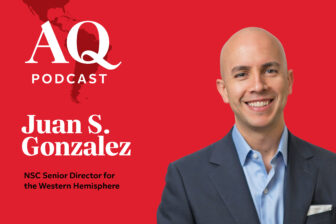This article is adapted from AQ’s special report on the Summit of the Americas
The topics of education, gender diversity and digital connectivity and inclusion should be at the top of the agenda for the 2022 Summit of the Americas. Recognizing that Latin America has made limited progress in these areas, much more needs to be done for the region to be competitive and globally relevant. The public sector must provide leadership to drive this change. And the summit is the perfect place to begin.
To succeed, women must be on the agenda and at the table. More women are entering the workforce than ever before, but how many of them hold senior titles, sit on boards of directors, receive funding to start and build businesses, or are named to cabinet-level positions? Too few! A notable exception is the new government of Gabriel Boric in Chile, which includes 14 women ministers, or 58% of the cabinet, including the ministers of foreign relations and the interior. But most countries and companies have yet to achieve this level of parity. Despite numerous studies showing that increased diversity leads to better decisions and higher profitability, women are still underrepresented on boards, in C-suites and in other decision-making spaces.
Digital connectivity is also urgent. The lack of digital infrastructure in Latin America became tragically evident during the COVID-19 pandemic. Children lost years of their education and now millions of students in the region are lagging in the very skills needed to succeed in a competitive job market. If this generation is left behind, we will see greater poverty, inequality and migration.
At the summit, leaders must focus on the real issues impeding development. They need to demonstrate boldness and prove that they, too, can innovate to solve problems. An executable plan to ensure digital access and education must be developed. In today’s world, gender diversity, digital connectivity and access to education are not privileges, but rights.









